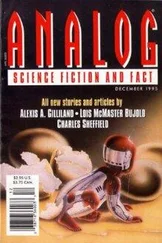This fell like dirty cinders. As information, it offered nothing except the fact that Herbert was not far from the waiting room. Perhaps it had no connection with him; in this particular game no one was allowed an unfair advantage. It was old and tarnished stuff which had come to her by error. Complete information concerning Herbert had certainly been caught by someone who had no use for it. It was like the Pottenstein letter — each person involved with it was now in a different place, moving steadily in a new direction. A day of indecision could make all the difference between silvery flakes and mud.
Little Bert yawned and pressed the sponge against his mouth. His muffled voice said, “Read!”
The trouble about the grave is that he ’ s got family living around Muggendorf. My cousin-in-law tipped them off. They ’ re watching the grave closely. At the first sign of drought, weeds, plant lice, cyclamen mites, leaf hoppers, thrips, borers, whiteflies, beetles feeding, they’ll take colour photographs of the disaster and use them as evidence. Which would mean the end of the eight hundred dollars .
“What are we waiting for now?” said little Bert.
“For the conductor to tell us about our train. It is much cooler in here.” She had been going to add, “and there is less interference,” but that wasn’t true. At least the other women were silent; ever since Christine had put the conductor in his place they seemed afraid of her too.
“Read,” said little Bert. “You never finished anything.”
“What do you want as a beginning this time?”
“Whatever it says.”
“I did read you a bit of that,” she said. “You didn’t like it.”
Last Sunday they happened to find one bare spot and they planted an ageratum. A reproach. What nobody understands is that it isn ’ t usual to buy a plot for just a can of ashes. I would have kept them at home, but his will had one whole page of special instructions. What can you put on a plot that size? Not much bigger than a cat ’ s grave and the stone takes up room. The begonias are choking the roses and vice versa .
Little Bert yawned again, even wider. “You’ll soon be home,” she said.
“What do we do when we get home?” He had been away for a whole week, plus this long day.
And yet they managed to find room for one ageratum. Only one year to go. Hang on, I keep telling myself. Hang on for the eight hundred dollars. Worth hanging on for. After that I’ll be ready to go. Plot purchased and paid up. Nowhere near him .
“You’re not reading,” said little Bert.
She waited a few seconds longer, until the air was clear. Perhaps the silent women were attracting everything to themselves without being conscious of it. Then she distinctly heard Herbert saying, “En quel honneur?” It was loud, for him, and rather frantic. She guessed it must have been his response to a piece of irritating news — that there would be a long delay, for instance. She wondered if she and little Bert should go out to him; but the child was tired and once they had left the waiting room they would have to stand, perhaps for a long time. While she was wondering and weighing, as reluctant as ever to make up her mind, a great stir started up in the grey and wintry-looking freight yards they could see from the window. Lights blazed, voices bawled in dialect, a dog barked. As if they knew what this animation meant and had been waiting for it, the women picked up their parcels and filed out without haste and without looking back.
“No, you stay here,” said Christine, holding little Bert, who had made a blind move forward. He looked at her, puzzled perhaps, but not really frightened. When the door had closed softly behind the last of them she felt a relief, as at the cessation of pain. She relaxed her grip on the child, as if he were someone she loved but was not afraid of losing.
“Read,” said little Bert. “Look in the book.”
“I’ll read for a minute,” she said. “Then we will have to do something else.”
“What?”
“I don’t know,” she said. “Go out, or wait here. I’m sorry to be so uncertain.” He sat as near to her as when the room had been full. She opened her book and saw, “ ‘The knowledge of good and evil is therefore separation from God. Only against God can man know good and evil.’ Well,” she said, “no use going on with that. Don’t be frightened, by the way,” she told little Bert, who was not frightened of anything, though in Paris he had pretended to be afraid of the dark.
That was the end of it. He ’ s in Muggendorf and I ’ m hanging on. When Carol Ann learned to pronounce “th” did that make her a better Christian? Perhaps it did. Perhaps it took just that one thing to make her a better Christian .
She had been hoping all day to have the last word, without interference. She held little Bert and said aloud, “Bruno had five brothers, all named Georg. But Georg was pronounced five different ways in the family, so there was no confusion. They were called the Goysh, the Yursh, the Shorsh …”

Part of the plot of their friendship, the reason for it, is that the police commissioner has become an old bachelor now, and his life rests upon other lives. He rests upon people for whom he is not really responsible. Helena is by far the most important. She is important quite in herself, because anyone with television in this part of Germany knows her by sight. The waitress, just now, blushed with excitement when she recognized her, and ran to the kitchen to tell the others.
The commissioner and Helena have been friends forever. He cannot remember when or how they met, but if he were asked he would certainly say, “I have always known her.” It must be true: look at how charming she is today — how she laughs and smiles, and gives him her time; oh, scarcely any, if the minutes are counted, but as much as he needs, enough. She is younger than the commissioner, but if she were to turn away, dismiss him, withdraw her life, he would be the orphan. Yes, he would be an orphan of fifty-three. It is the greatest possible anxiety he can imagine. But why should she? There is no quarrel between them. If ever there was, he has forgotten it. It was never put into words. He is like any policeman; he knows one meaning for every word. When, sometimes, he seems to have transgressed a private rule of hers, it is outside the limits of the words he knows, and he simply cannot see what he has done. She retreats. In a second, the friendship dissolves, and, without understanding why he deserves it, he is orphaned and alone.
When the weather suits her and she has nothing urgent to do, she lets him drive her to a garden restaurant on a height of land above Frankfurt. It is in a suburb of quiet houses — “like being in the mountains,” he says. He sniffs the air, to demonstrate how pure it is. “But you really should come here at night,” he says; for then the swimming pool in each of the gardens is lighted blue, green, ultramarine. The commissioner flew over in a helicopter once, and it looked … it was … it should have been photographed … or painted … if it had been painted … described by Goethe , he cries, it could not have been more …
“Tell us about Goethe,” Helena interrupts, laughing.
She has brought her little boy along. The three of them sit at a table spread with a clean pink cloth. On a silver dish, and on still another pink cloth, this one embroidered, are wedges of chocolate cake, and mocha butter cakes, and Linzer torte, and meringue shells filled with whipped cream, sprinkled with pink, green, yellow sugar. The champagne in the silver bucket is for the commissioner and Helena.
Читать дальше













